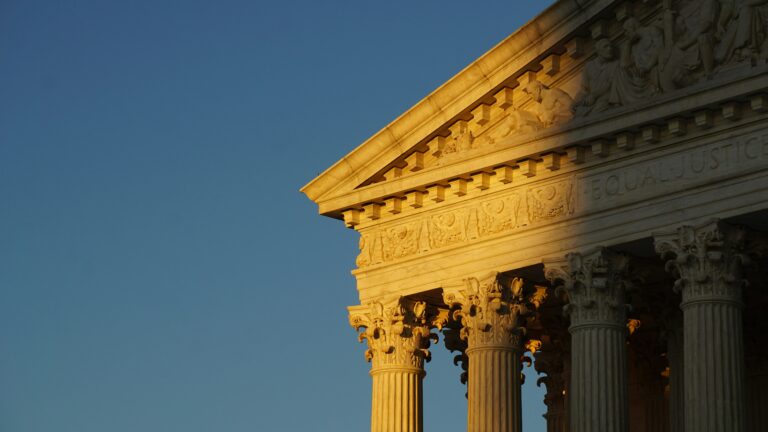Today, Breached Podcast released a new episode exploring employment as a component of the social contract. The episode treats the NLRA as the foundation of the social contract between employees and employers and asks how changes in the nature of work provide both the impetus and opportunity to reshape our rights and obligations in the employment context. To answer this question, my co-host Helena Swanson-Nystrom and I spoke with Sharon Block, Executive Director of the Labor and Worklife Program at Harvard Law School; Oren Cass, a senior fellow at the Manhattan Institute; Tom Kochan, a professor at MIT Sloan School of Management; and Steven Pedigo, an assistant professor at the NYU School of Professional Studies.
This is the sixth episode in a ten-part series that seeks to unpack the areas of American life in which some sort of bargain between us—either explicit or implicit—no longer seems to stand. Each episode highlights a different issue that has traditionally been framed as an essential element of any American social contract, asking the following questions: What are the areas in which the American social contract has changed, has been broken, or has never really lived up to what some Americans might hope? Who belongs in the social contract? Why are certain obligations so important to our country? How should new norms be created, or old norms be revived? And at what cost are we willing to see this through?
Breached starts with a conversation about how we define the boundaries of an American community—legally, politically, and practically—and how our perception of community may be shifting today. It then explores dissent, as both a shaper and a component of the social contract.
The next five episodes focus on substantive areas of a social contract that have never been expressly codified in the U.S. Constitution: First, we explore the role of safety, asking how our country’s debate around guns defines who can keep themselves safe—through both access to and protection from guns in their communities. Second, we discuss health, taking a step back from the hyper-partisan political debate around health care and instead exploring whether there are ways to reimagine and reframe a social contract of health that challenges the status quo, adopts new tools for substantive change, and invites new voices and perspectives to the table. Next, the series posits that our education system challenges a national sense of community and examines what happens when we limit our obligations to those in our immediate neighborhood and shrink our social contract to a local level. Finally, after employment, we will release an episode on housing, an area in which the government created substantive rights that did not extend to all Americans.
The final three episodes will consider how to sustain the social contract—by paying for it (taxation), upholding it (service), and rewriting it (democracy).
You can learn more about the podcast at www.breachedpodcast.org and subscribe on iTunes.










Daily News & Commentary
Start your day with our roundup of the latest labor developments. See all
December 22
Worker-friendly legislation enacted in New York; UW Professor wins free speech case; Trucking company ordered to pay $23 million to Teamsters.
December 21
Argentine unions march against labor law reform; WNBA players vote to authorize a strike; and the NLRB prepares to clear its backlog.
December 19
Labor law professors file an amici curiae and the NLRB regains quorum.
December 18
New Jersey adopts disparate impact rules; Teamsters oppose railroad merger; court pauses more shutdown layoffs.
December 17
The TSA suspends a labor union representing 47,000 officers for a second time; the Trump administration seeks to recruit over 1,000 artificial intelligence experts to the federal workforce; and the New York Times reports on the tumultuous changes that U.S. labor relations has seen over the past year.
December 16
Second Circuit affirms dismissal of former collegiate athletes’ antitrust suit; UPS will invest $120 million in truck-unloading robots; Sharon Block argues there are reasons for optimism about labor’s future.